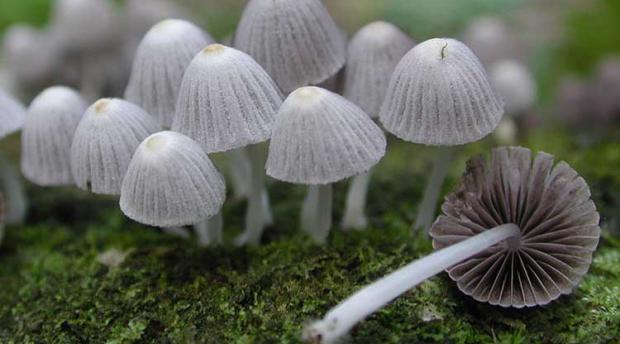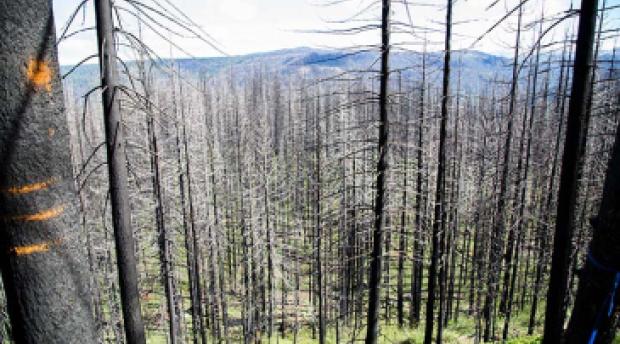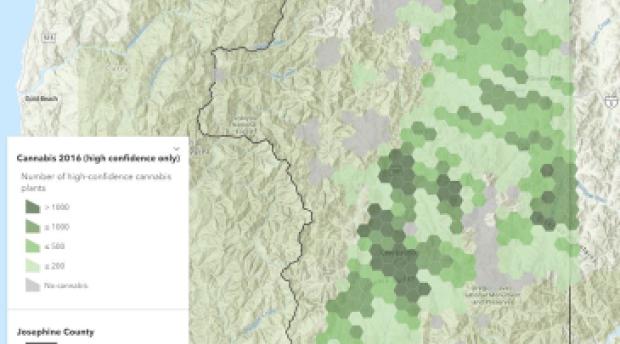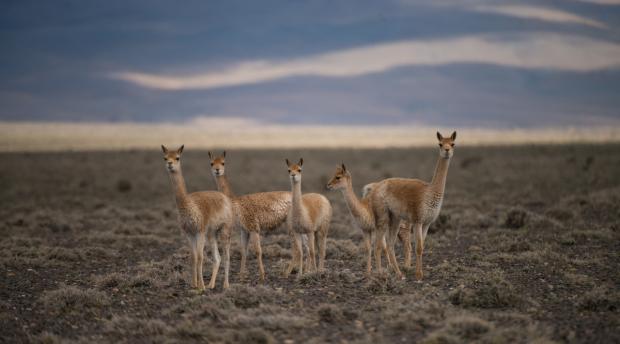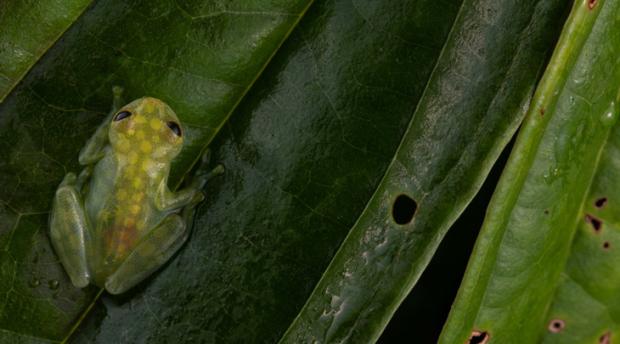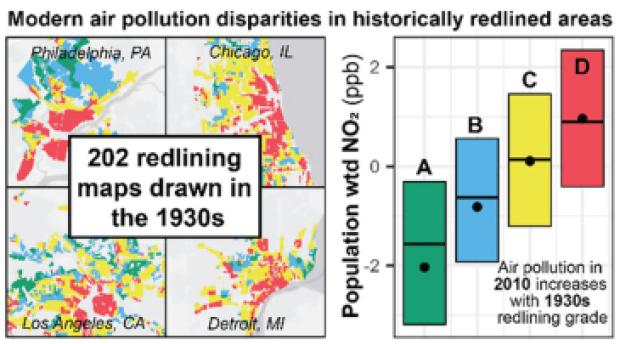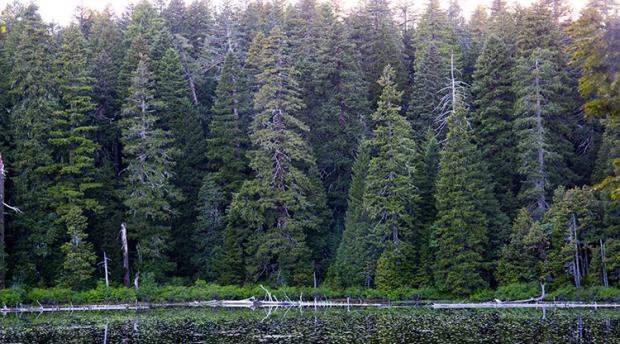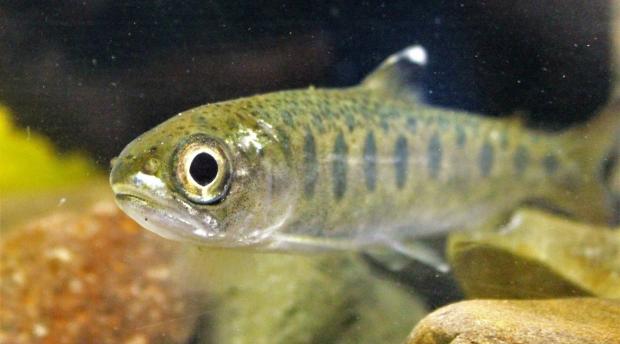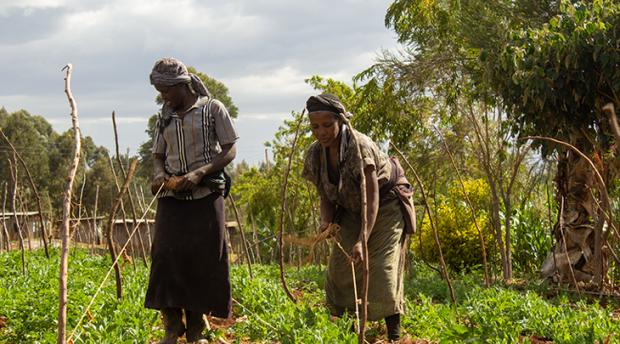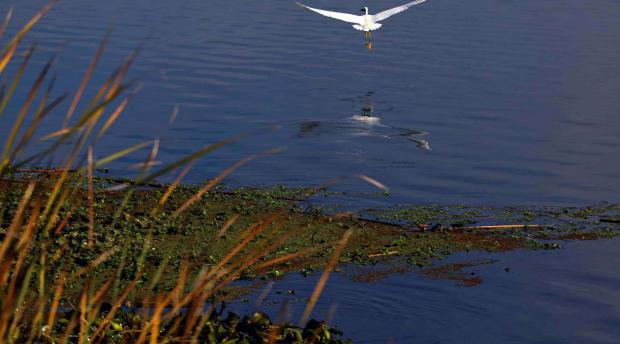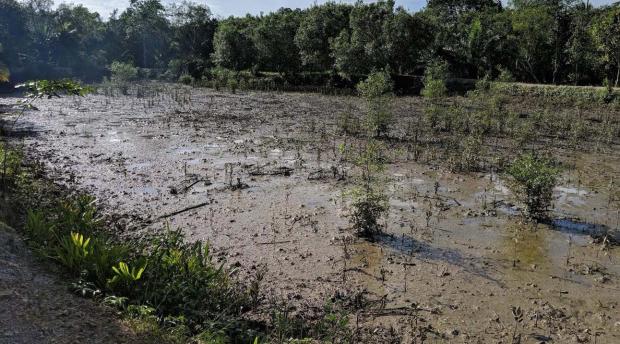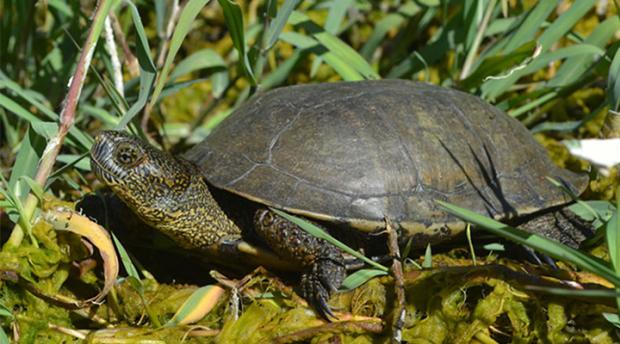Research
Polynesian Island yields ‘treasure trove’ of fungal biodiversity
Matteo Garbelotto, ESPM faculty member, explores some of the fungal kingdom's "uncharted territory."
UC Berkeley researchers suggest rethinking California’s conflicting forest carbon policy
New analysis suggests challenges to meeting California’s greenhouse gas reduction targets for natural and working lands.
New tool visualizes cannabis production in Southern Oregon
Researchers at the Berkeley Cannabis Research Center have created a mapping tool to help guide local land use planning discussions and decisions.
With climate change, Berkeley snow lab’s mission remains critical
Central Sierra Snow Laboratory Manager Andrew Schwartz and Director Robert Rhew, professor in ESPM, talk about the station's important work monitoring California's snowpack.
Disease outbreak linked to widespread ecological disturbance in remote Andes
The findings point to the importance of tracking the effects of disease outbreaks globally.
Two endangered glass frogs discovered near Andean mining sites
ESPM PhD Candidate Becca Brunner says the discovery highlights the region’s “cryptic diversity” and the importance of conservation.
Historical redlining is associated with present-day air pollution disparities in U.S. cities
A new study co-authored by Professor Rachel Morello-Frosch found a strong correlation between historic housing discrimination and air pollution.
How Indigenous burning shaped the Klamath’s forests for a millennia
A new study from ESPM researchers found that decades of logging and fire suppression have left California’s forests prone to drought, infestation, and catastrophic wildfire.
U.N. climate report underscores urgency of cutting carbon emissions
Patrick Gonzalez, ESPM associate adjunct professor, served as a lead author of the chapter on terrestrial ecosystems.
Research spotlight: Brian Kastl
A grad student in the Grantham lab, Kastl is exploring new ways to protect endangered coho salmon
Transnational land investments induce competition for water resources
A study co-authored by Paolo D’Odorico suggests that the transition from smallholder farming to large-scale commercial agriculture is enhancing the strain on water availability.
Study: Safe drinking water remains out of reach for many Californians
Professor Rachel Morello-Frosch co-authored the recent analysis along with other researchers at UC Berkeley and UCLA.
Want to limit carbon and curb wildfire? Create a market for small trees
A new analysis by Rausser College researchers shows how the state can effectively reduce wildfire risk through forest thinning while continuing to limit carbon emissions.
Plants Buy Us Time to Slow Climate Change – But Not Enough to Stop It
New research from the lab of Trevor Keenan shows that plants are photosynthesizing more in response to more carbon dioxide in the atmosphere
Wetland restoration could be a blueprint for how California adapts to climate change
Research by Dennis Baldocchi’s lab in the Dutch Slough wetlands was featured in the San Francisco Chronicle this week.
CRISPRing the microbiome is just around the corner
CRISPR is widely used to target specific cell types, but only one at a time. Two new techniques developed in the lab of Jill Banfield allow CRISPR editing of genes in multiple cell types simultaneously.
More Than 400 Hazardous Sites in California Face Flooding
Research by a team that includes Professor Rachel Morello-Frosch suggests flooding could hit power plants, refineries, and hazardous waste sites in many locations across the San Francisco Bay Area and southern California.
Policies for mitigating wetland loss hide large climate impacts
A commonly used policy for conserving ecosystems is underestimating large emissions of greenhouse gases, according to new research by UC Berkeley scientists published in the journal Ecography.
Alexii Sigona on supporting his tribe as an academic
Sigona, a member of the Amah Mutsun Tribal Band and a third-year ESPM Ph.D. student, focuses his research on Indigenous natural resource management, specifically with the Amah Mutsun—a landless and non-federally recognized tribe.
A wellness check for Tilden Park’s turtles
Former ESPM postdoctoral scholar Max Lambert is part of a team of wildlife experts studying local Western pond turtles, a species that is struggling to survive the combined threats of climate change, habitat loss and competition from red-eared slider turtles.


